POLITICS IN THE DIGITAL AGE
07.04.2019
Disinformation
MEMO 98 expert Rasto Kuzel was one of the speakers at the Danube University Krems which, along with the Tallinn University of Technology, Ragnar Nurkse Department of Innovation and Governance, hosted the Eastern Partnership eDemocracy Conference on ‘Politics in the Digital Age’ under the auspices of the Austrian Presidency of the Council of the EU.
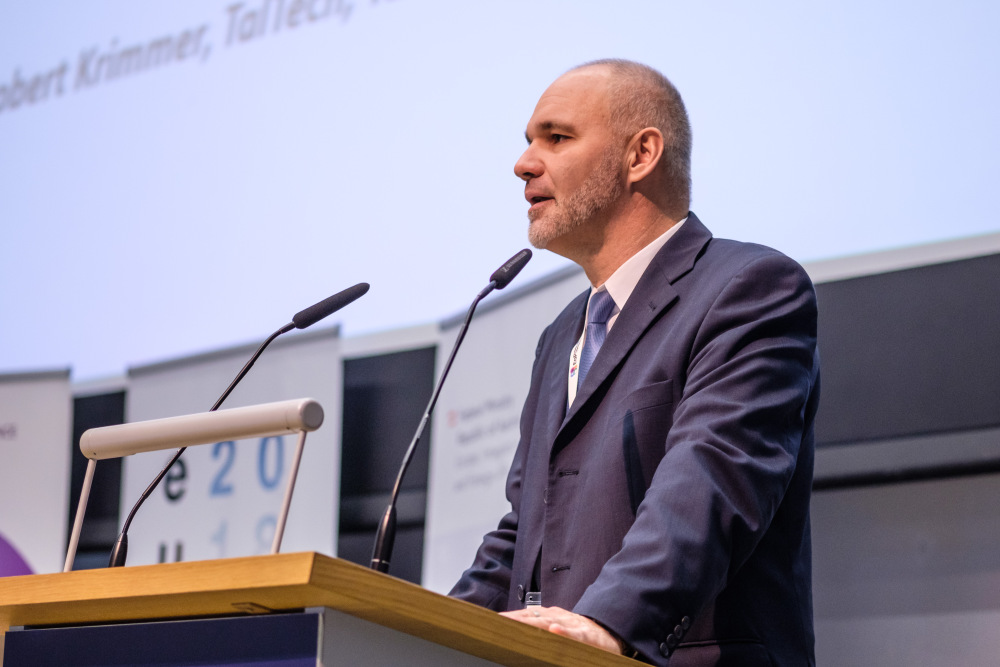
(Photo Copyright Wolfgang Simlinger)
The conference provided experts from academia, think-tanks, governments, international and civil society organizations from the EU member states and the EU’s Eastern Partnership countries – Armenia, Azerbaijan, Belarus, the Republic of Moldova, Georgia, and Ukraine – the opportunity to discuss the current topics and challenges of eDemocracy.
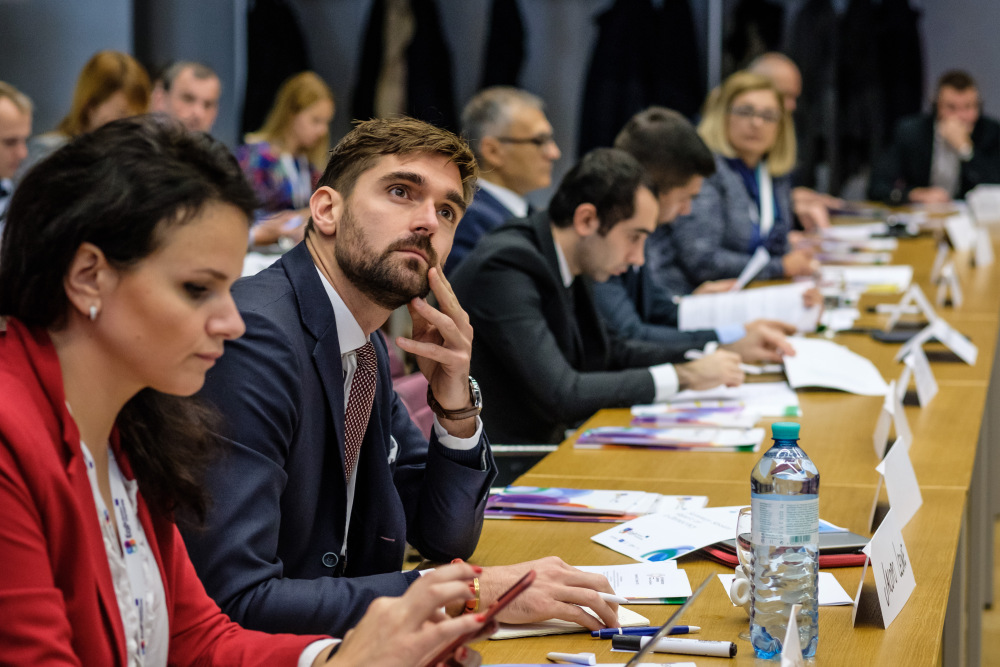
(Photo Copyright Wolfgang Simlinger)
The conference focused on three dimensions of good governance: participation through political communication in the digital sphere, transparency and stakeholder inclusion. How can eDemocracy enhance participation, inclusion, transparency, and accountability? Although political communication, access to information, transparency and inclusion are not new concepts, they need to be re-appraised in the digital context. This report summarises the exploration of these dimensions by the keynotes and the conference participants’ experiences.
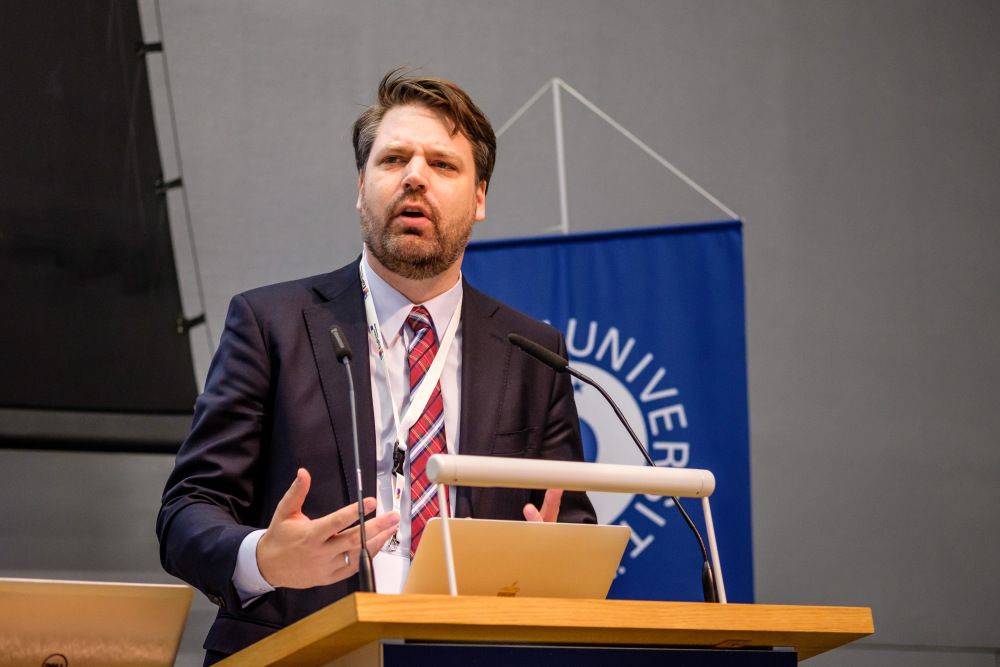
(Photo Copyright Wolfgang Simlinger)
Executive Summary of the conference
The use of digital tools and the digitalization of democracy can help governments change their relationships with citizens and businesses, support citizens’ involvement in government-led activities, and by making government more open and transparent, may be able to increase citizens’ trust in government. However, eDemocracy is not a panacea, it can neither be an end in itself nor should it replace traditional democracy. Western countries and the Eastern Partnership countries face similar issues and challenges when using digital tools to enhance democracy, in order to combine online and offline communication effectively, trying to increase citizen participation by citizens, using Artificial Intelligence, or dealing with the problems created by trolling and “fake news”. All countries are at some transit stage towards achieving a digital world and in terms of their eDemocracy development, with the need to address several challenges on issues such as political communication in the digital sphere, transparency and accountability of government activities as well as stakeholder involvement.
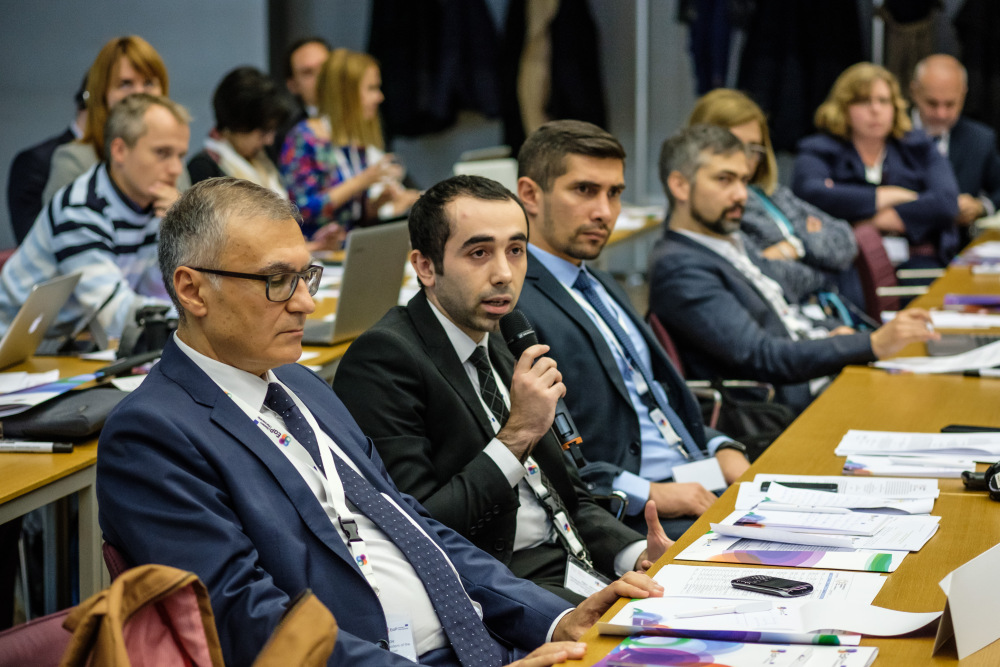
(Photo Copyright Wolfgang Simlinger)
Social media and direct, digital communication change the ways in which public administration and politicians can communicate with citizens. Benefits can be that information spreads rapidly and is able to reach marginalized groups that previously could not access the information and may, therefore, engage less in relevant for political decision-making processes. Governments and public administration may not necessarily know what citizens needs are, so stakeholder participation and co-production are opportunities for listening and communicating with citizens and other stakeholders. But there are negative consequences of online communication such as echo chambers, bubbles, and digital ghettos that inhibit political processes central to democracy, and algorithms of social media aim to maximize our online presence in order to increase advertising revenues, not to support meaningful conversations. Further, “fake news” that increases the divide between official representatives and citizens and the “Trumpification” of political communication impact democracies in the Eastern and Western world. Academic experts sometimes find it hard to distinguish between what is "fake news" and what not, making evident the need for more media and digital literacy training.
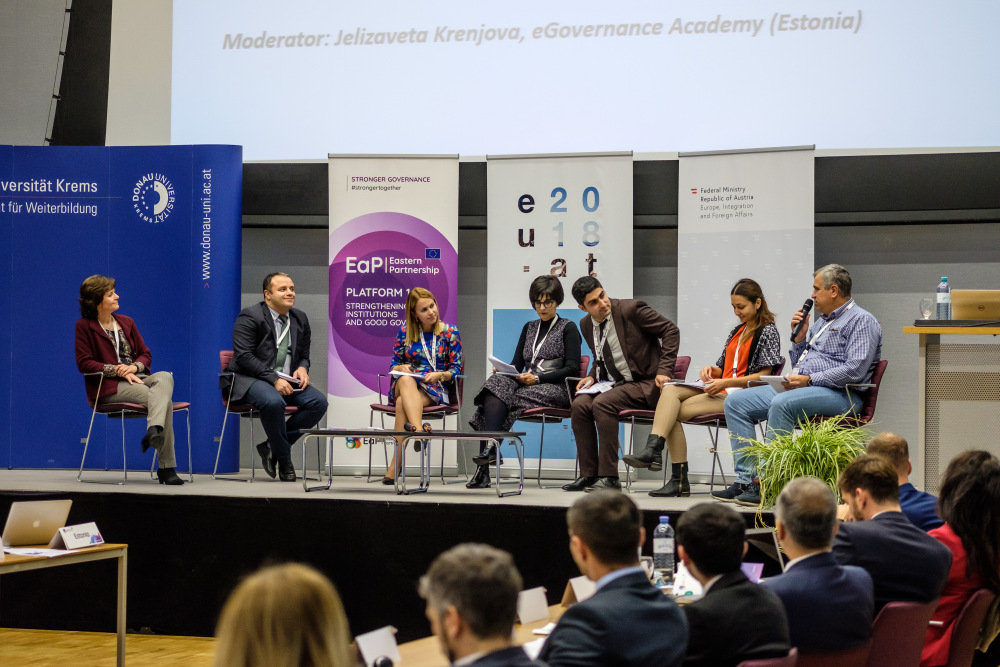
(Photo Copyright Wolfgang Simlinger)
eDemocracy is based on the provision of information and Open Data and should support citizens to build democratic tools and their democratic space. Transparency is a cornerstone of good governance, it enables greater scrutiny of politics and public administration by different stakeholders, in other words, it makes governments more accountable. At the same time, transparency means access to massive amounts of data, limiting citizen participation and thus the benefits of transparency.

(Photo Copyright Wolfgang Simlinger)
The digital age has transformed societies, and Eastern Partnership countries are confronted with state- and nation-building, democratization, and digitalization at the same time making it essential to learn from the Western and Eastern countries’ experiences and experiments. The report below is a summary of personal views and comments made by the keynotes speakers, panelists and conference participants during the conference. It does not represent an official statement or assessment of the readiness or status of eDemocracy in any of the countries. There are two parts to this report. First, it summarises the keynotes speakers’ presentations and their discussions with the conference participants: Rasto Kuzel on “Communication in the Digital Sphere”, Alexander Trechsel on “Transparency and Accountability” and Elke Löffler on “Stakeholder Involvement”. Secondly, it briefly summarises some experiences from the Eastern Partnership countries in relation to the three conference topics.
More information about the conference can be found here: https://digitalgovernment.wordpress.com/2018/11/23/summary-eap-edemocracy-conference-23-october-2018-politics-in-the-digital-age/
The final report of the conference can be found is here eap-edem-conference-2018-report_final_january-2019
The full keynote speech by Rasto Kuzel can be found here krems-speech-rasto-kuzel
The video link can be found here https://www.youtube.com/watch?v=FKIuQqeIOPg
An interview with Rasto Kuzel can be found here https://www.youtube.com/watch?v=pgVVd9xsnJ4
